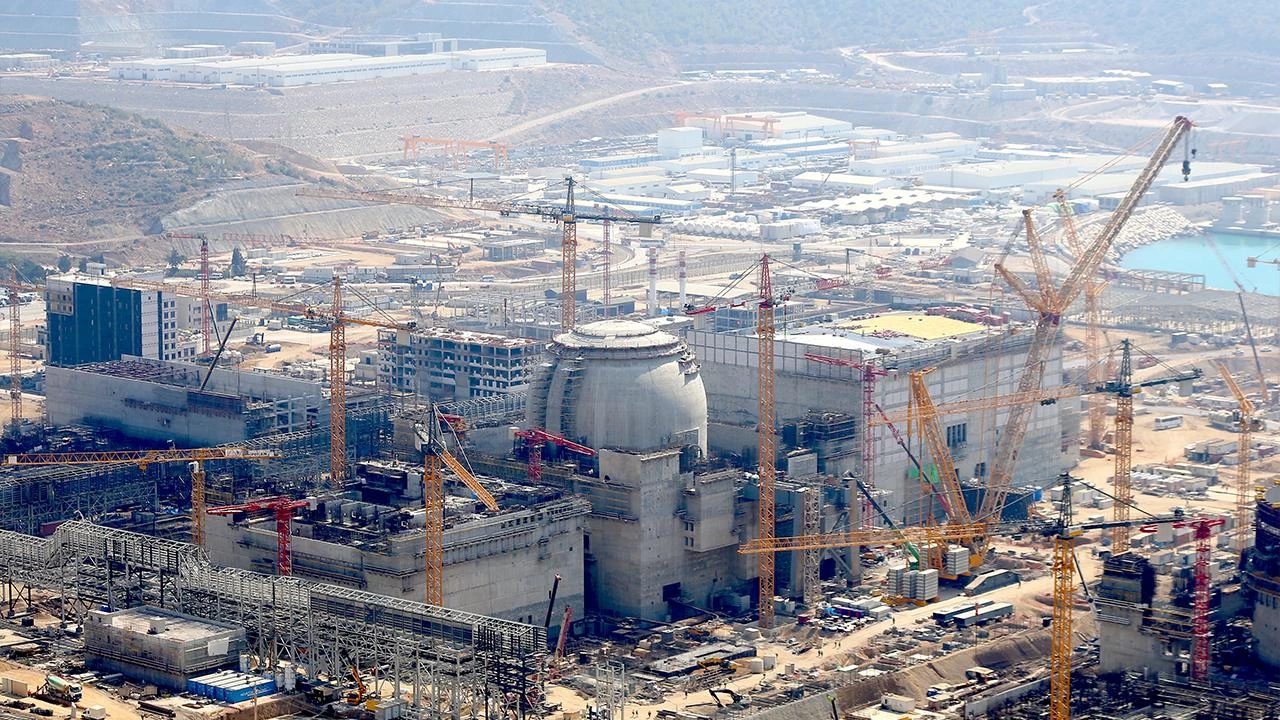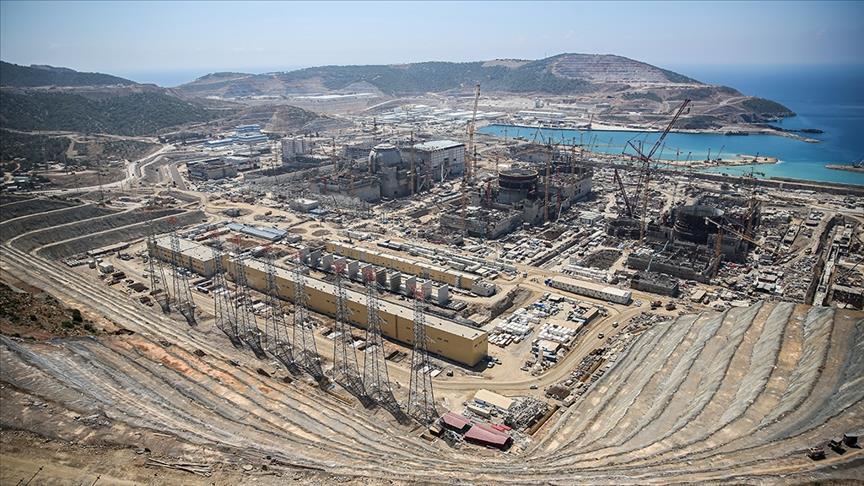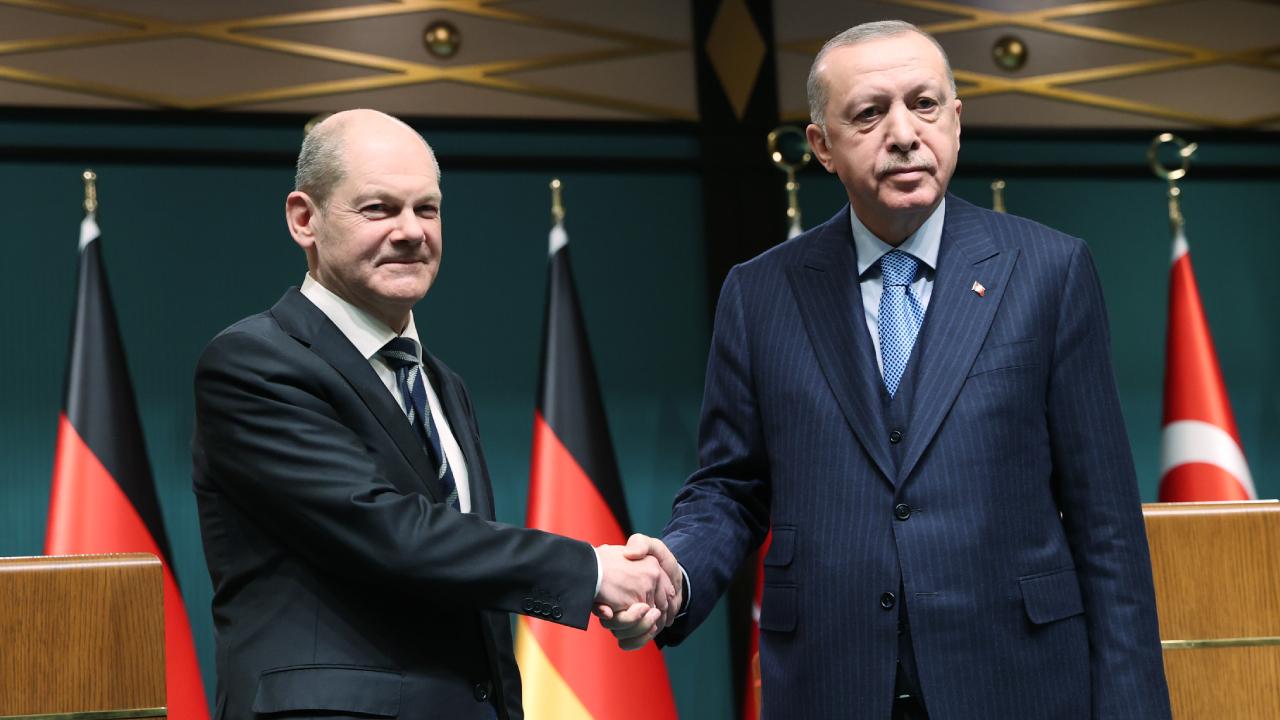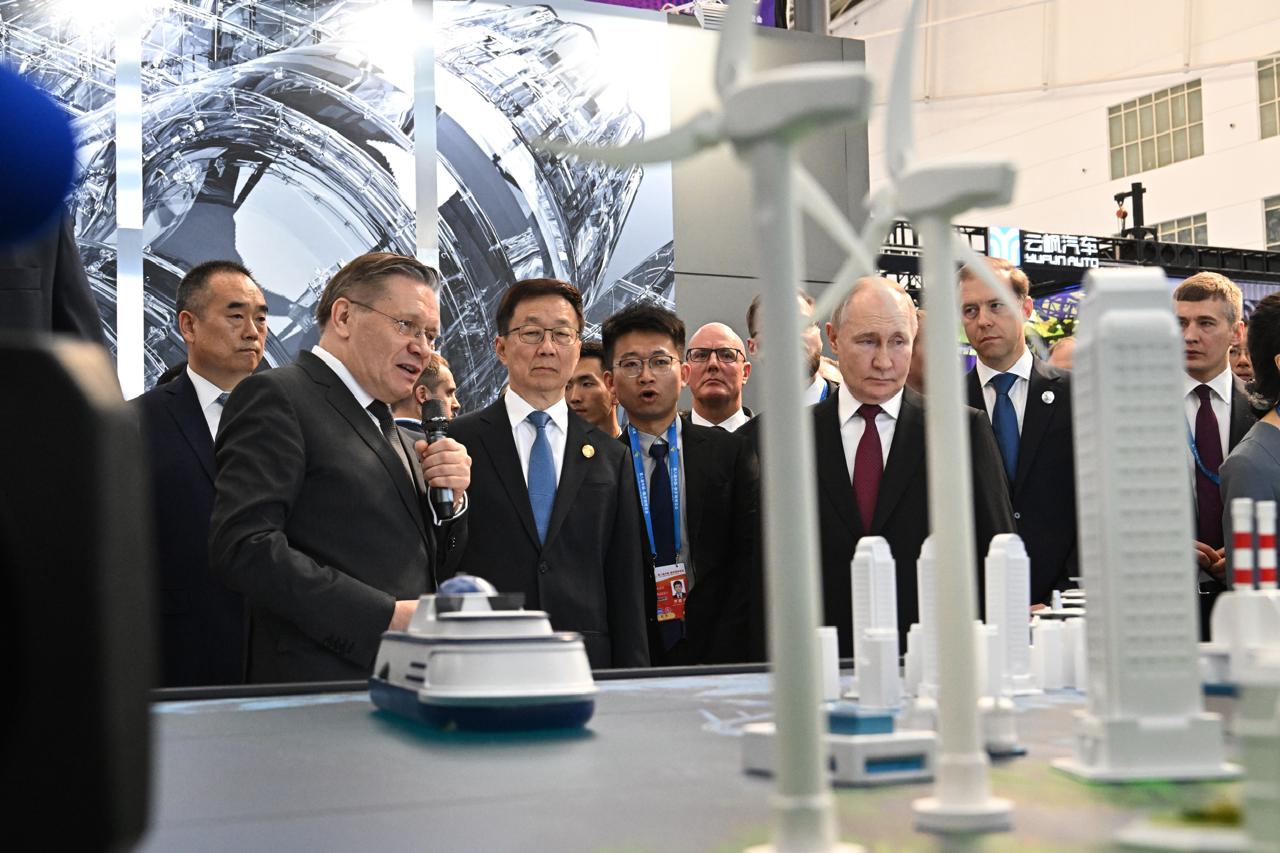Siemens delays Türkiye’s Akkuyu nuclear plant: What’s next?
 Construction work continues at the Akkuyu Nuclear Power Plant. (AA Photos)
Construction work continues at the Akkuyu Nuclear Power Plant. (AA Photos)
Türkiye embarked on its journey to build its first nuclear power plant in 2010, signing an agreement with Russia’s Rosatom. The Akkuyu Nuclear Power Plant (NPP), located in Mersin, was designed to produce 4,800 megawatts (MW) of power from four reactors. Key milestones in the project include:
- 2013: Construction of the plant began.
- 2018: Significant acceleration in construction efforts.
- 2023: Nuclear fuel loaded into the first power unit, with a planned startup in late 2023.
The project, valued at $20 billion, aims to produce 10% of Türkiye’s electricity once completed by 2028.

Siemens Energy’s withholding of key parts
The project faced delays in 2023 when Siemens Energy, a major German company, withheld crucial parts needed for the first reactor. This was attributed to German export regulations, likely tied to sanctions on Russia over the war in Ukraine. Some key facts:
- Siemens’ stance: Export licenses for the parts had not been issued.
- Bayraktar’s remarks: Türkiye’s Energy and Natural Resources Minister Alparslan Bayraktar expressed concerns that the decision was political, and not based on legal grounds.
- Germany’s position: While no direct statement was provided by German authorities, the delay is seen as linked to broader European sanctions.
Rosatom’s shift to China
Following a halt in deliveries from a previous supplier, Rosatom initiated efforts to source equivalent components from Chinese manufacturers. Bayraktar, a key figure involved in the project, stated that the necessary orders have been placed and that the timely delivery of these parts is expected to ensure the project remains on schedule.
While specific Chinese companies were not disclosed, Bayraktar emphasized that Rosatom has already secured the required equipment and that the resumption of deliveries from China will play a crucial role in maintaining project momentum.
Bayraktar also suggested potential financial penalties against Siemens Energy due to the delays, despite a long-standing partnership between Türkiye and the German company. He warned that Siemens’ actions could affect future collaborations with Ankara, raising concerns about the political motivations behind the delays.

Diplomatic tensions
The delays escalated into a diplomatic issue between Türkiye and Germany. President Recep Tayyip Erdogan publicly criticized Germany for the customs-related delays, which he raised directly with Chancellor Olaf Scholz. The repercussions of these delays include:
- Republic Day target missed: Türkiye’s aim to inaugurate the Akkuyu plant on Oct. 29, 2023, was thwarted.
- Tension in energy diplomacy: The strain on Türkiye-Germany relations has heightened, with both sides standing firm on their respective positions.
Progress at Akkuyu plant
Despite the setbacks, construction at Akkuyu has progressed. Notable achievements in 2023 include:
- Turbine foundation completed: For the third reactor, advanced technology was used to lay the foundation of the turbine system.
- Concrete pouring: A total of 2,220 cubic meters of high-strength concrete was used, and the structure was designed to withstand heavy loads.
- Technological milestones: The turbine system is designed to convert steam into mechanical energy, facilitating electricity production.

Navigating geopolitical and economic pressures
The Akkuyu NPP’s delays highlight the intersection of global politics and energy security. Türkiye’s balancing act between Moscow and the West places the country in a complex position.
The strain between Ankara and Berlin over this issue underscores how geopolitical tensions can disrupt international energy projects. The decision to pivot to China reflects Rosatom’s adaptability and Türkiye’s determination to complete Akkuyu, but it also signals a shift in Türkiye’s energy diplomacy.
In the coming years, the Akkuyu plant will play a critical role in Türkiye’s energy strategy. However, the delays and shifting international dynamics illustrate the vulnerability of large-scale energy projects to external political forces. The continued construction progress, coupled with alternative sourcing from China, may mitigate some of these challenges, but the future of Turkish-German energy relations remains uncertain.



